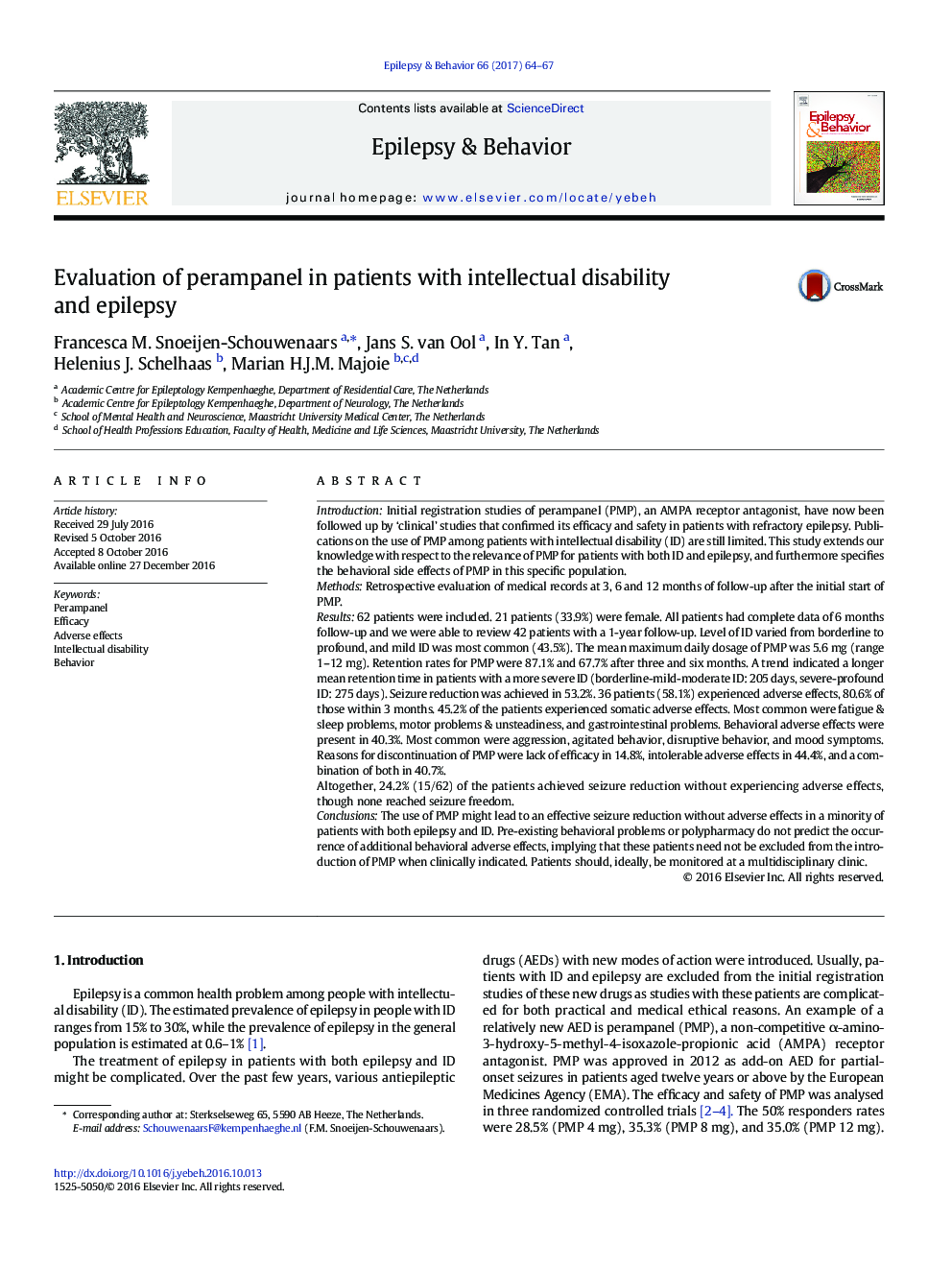| کد مقاله | کد نشریه | سال انتشار | مقاله انگلیسی | نسخه تمام متن |
|---|---|---|---|---|
| 5628010 | 1579826 | 2017 | 4 صفحه PDF | دانلود رایگان |
- A trend indicated a longer mean retention time of PMP in patients with a more severe ID.
- Behavioral adverse effects are present in 40.3% of patients.
- Pre-existing behavioral problems do not predict additional behavioral adverse effects of PMP.
IntroductionInitial registration studies of perampanel (PMP), an AMPA receptor antagonist, have now been followed up by 'clinical' studies that confirmed its efficacy and safety in patients with refractory epilepsy. Publications on the use of PMP among patients with intellectual disability (ID) are still limited. This study extends our knowledge with respect to the relevance of PMP for patients with both ID and epilepsy, and furthermore specifies the behavioral side effects of PMP in this specific population.MethodsRetrospective evaluation of medical records at 3, 6 and 12Â months of follow-up after the initial start of PMP.Results62 patients were included. 21 patients (33.9%) were female. All patients had complete data of 6Â months follow-up and we were able to review 42 patients with a 1-year follow-up. Level of ID varied from borderline to profound, and mild ID was most common (43.5%). The mean maximum daily dosage of PMP was 5.6Â mg (range 1-12Â mg). Retention rates for PMP were 87.1% and 67.7% after three and six months. A trend indicated a longer mean retention time in patients with a more severe ID (borderline-mild-moderate ID: 205Â days, severe-profound ID: 275Â days). Seizure reduction was achieved in 53.2%. 36 patients (58.1%) experienced adverse effects, 80.6% of those within 3Â months. 45.2% of the patients experienced somatic adverse effects. Most common were fatigue & sleep problems, motor problems & unsteadiness, and gastrointestinal problems. Behavioral adverse effects were present in 40.3%. Most common were aggression, agitated behavior, disruptive behavior, and mood symptoms. Reasons for discontinuation of PMP were lack of efficacy in 14.8%, intolerable adverse effects in 44.4%, and a combination of both in 40.7%.Altogether, 24.2% (15/62) of the patients achieved seizure reduction without experiencing adverse effects, though none reached seizure freedom.ConclusionsThe use of PMP might lead to an effective seizure reduction without adverse effects in a minority of patients with both epilepsy and ID. Pre-existing behavioral problems or polypharmacy do not predict the occurrence of additional behavioral adverse effects, implying that these patients need not be excluded from the introduction of PMP when clinically indicated. Patients should, ideally, be monitored at a multidisciplinary clinic.
Journal: Epilepsy & Behavior - Volume 66, January 2017, Pages 64-67
